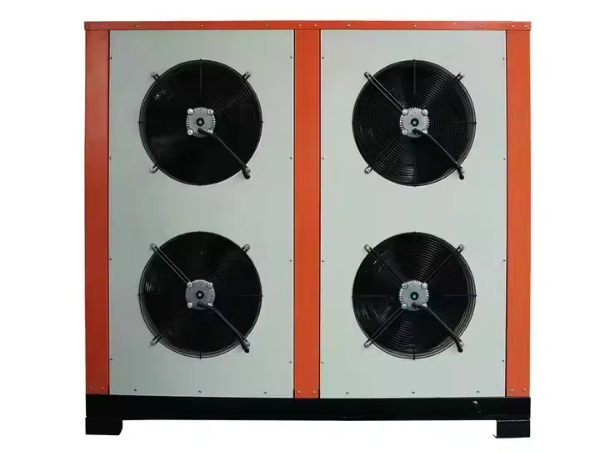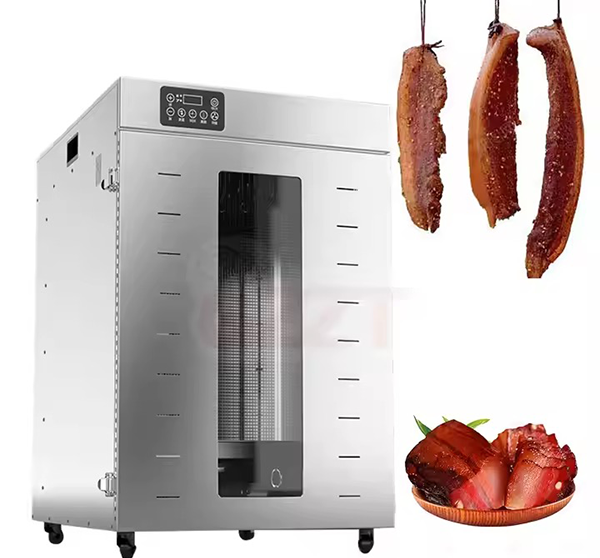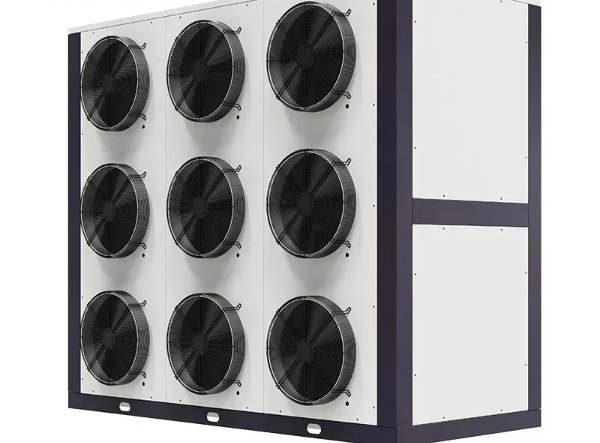
Content Menu
● What are Hang Type Drying Machines?
● Applications in Food Processing
● Preservation of Food Quality
● Intelligent Digital Control Systems
● Automation Features
● Case Studies
● Deep Dive into the Technology
>> Airflow Management
>> Temperature and Humidity Control
>> Material and Design
>> Energy Efficiency and Sustainability
● Integration with Existing Systems
>> Compatibility
>> Automation
>> Maintenance and Servicing
● Future Trends in Hang Type Drying Technology
>> Advancements
● Customization Options
>> Tailoring to Specific Needs
>> Considerations When Customizing
● Benefits Over Traditional Drying Methods
>> Comparison
● Challenges and Solutions
>> Overcoming Obstacles
● Real-World Applications
>> Diverse Industries
● Advantages for Specific Products
>> Noodles
>> Sausages
>> Herbs and Spices
● Strategic Considerations
>> Capital Investment
>> Operational Costs
● Conclusion
● FAQ
>> 1. What types of foods can be dried using hang type dryers?
>> 2. How do hang type dryers ensure even drying?
>> 3. What are the energy savings associated with heat pump technology?
>> 4. Can hang type dryers be customized?
>> 5. How do intelligent controls enhance operation?
● Citations:
Hang type drying machines have revolutionized the food processing industry by providing an efficient and gentle method for drying delicate food items. These machines are designed specifically to suspend products, allowing for uniform drying without compromising the quality of the food. This article will explore the technology, applications, and benefits of hang type drying machines in detail.

What are Hang Type Drying Machines?
Hang type drying machines utilize a vertical hanging system to dry food items. Unlike traditional drying methods that rely on trays or flat surfaces, these machines suspend products from hangers within a controlled environment. This design minimizes contact points, reducing the risk of sticking or deformation, which is critical for delicate products such as noodles, sausages, and herbs.
Applications in Food Processing
Hang type dryers are versatile and can be used for a variety of food products:
1. Noodles: The suspended arrangement prevents clumping, ensuring uniform drying while maintaining shape and texture.
2. Sausages: These machines provide a controlled environment for curing meats, preventing bacterial growth while enhancing flavor.
3. Fish and Seafood: Gentle drying conditions help retain natural flavors and aromas, resulting in high-quality products.
4. Herbs and Spices: Low-temperature drying preserves essential oils and flavors, producing potent final products.
5. Fruits and Vegetables: The controlled environment ensures even moisture removal, preventing spoilage.
Preservation of Food Quality
Maintaining food quality during the drying process is essential. Hang type drying machines allow precise control over temperature, humidity, and airflow. This minimizes damage to color, flavor, and nutritional content. By using lower temperatures for drying, these machines prevent excessive browning or oxidation.
Key Benefits of Hang Type Drying Machines:
1. Uniform Drying: The suspended arrangement allows maximum surface area exposure to airflow.
2. Energy Efficiency: Heat pump technology can result in energy savings of up to 75% compared to traditional methods.
3. Nutritional Preservation: Lower temperatures help maintain vitamins and nutrients in dried foods.
Intelligent Digital Control Systems
Modern hang type dryers feature intelligent digital controls that simplify operation. Users can program specific drying cycles tailored to different products, ensuring consistent results every time. These systems monitor data on temperature, humidity, and airflow, providing valuable insights into the drying process.
Automation Features
Automation features can be added to enhance efficiency:
1. Automatic Loading/Unloading Systems: Reduce labor costs and improve efficiency.
2. Predictive Maintenance: Helps prevent breakdowns by scheduling maintenance before issues arise.
Case Studies
1. Noodle Production: A large noodle manufacturer replaced traditional tray dryers with hang type machines. This switch led to improved product quality with less breakage and clumping.
2. Sausage Curing: A sausage producer reduced curing time by 30% using hang type dryers while maintaining desired flavor and texture.

Deep Dive into the Technology
Airflow Management
Effective airflow management is crucial in hang type drying machines. The design ensures that air circulates evenly around the suspended products, facilitating consistent drying.
Key Considerations:
1. Air Circulation Patterns: Optimizing circulation patterns helps maintain uniform drying temperatures throughout the chamber.
2. Air Speed Control: Adjustable air speed prevents damage to delicate products while ensuring adequate moisture removal.
Temperature and Humidity Control
Maintaining optimal temperature and humidity levels is essential for product quality. These parameters are closely monitored and adjusted using intelligent controls.
Importance:
1. Temperature Regulation: Precise temperature control prevents overheating and browning.
2. Humidity Management: Maintaining optimal humidity levels prevents drying too quickly, which can lead to cracking or hardening.
Material and Design
The materials used in hang type drying machines must be food-grade and durable. Stainless steel is a popular choice due to its hygienic properties and resistance to corrosion.
Materials Used:
1. Stainless Steel: Offers durability and ease of cleaning.
2. Insulated Panels: Provide energy efficiency by minimizing heat loss.
Energy Efficiency and Sustainability
Modern hang type drying machines are designed with energy efficiency in mind. Heat pump technology and insulated panels minimize energy consumption, reducing operational costs and environmental impact.
Strategies for Sustainability:
1. Heat Recovery Systems: Capture and reuse waste heat.
2. Variable Frequency Drives (VFDs): Adjust motor speed to match demand, reducing energy consumption.
Integration with Existing Systems
Compatibility
Integrating hang type drying machines into existing production lines requires careful planning. The machines must be compatible with existing equipment, such as loading and unloading systems.
Integration Steps:
1. System Assessment: Evaluate existing equipment and processes.
2. Customization: Modify machines to fit specific production line requirements.
Automation
Automating the drying process can significantly improve efficiency and reduce labor costs. Automated systems can handle loading, unloading, and monitoring of the drying process.
Benefits of Automation:
1. Reduced Labor Costs: Automated systems require minimal human intervention.
2. Improved Consistency: Automated systems ensure consistent drying results.
Maintenance and Servicing
Regular maintenance is essential for ensuring the long-term reliability of hang type drying machines. Maintenance tasks include cleaning, lubricating moving parts, and inspecting components for wear and tear.
Maintenance Schedule:
1. Daily: Clean interior surfaces.
2. Weekly: Inspect hangers and support structures.
3. Monthly: Lubricate moving parts.
4. Annually: Conduct a thorough inspection of all components.
Future Trends in Hang Type Drying Technology
Advancements
The future of hang type drying technology is focused on improving efficiency, automation, and sustainability. Advancements include:
1. AI-Powered Controls: These optimize drying parameters in real-time, reducing energy consumption and improving product quality.
2. Remote Monitoring: Allows operators to monitor and control machines from anywhere.
3. Improved Heat Pump Technology: Enhances energy efficiency and reduces environmental impact.
Customization Options
Tailoring to Specific Needs
Manufacturers often provide customization options to meet the specific needs of their customers. Customization options include:
1. Hanger Design: Customized hangers can accommodate different product sizes and shapes.
2. Chamber Size: The size of the drying chamber can be adjusted to fit specific production volumes.
3. Air Circulation Systems: Custom air circulation systems can optimize airflow for specific products.
4. Control Systems: Control systems can be tailored to meet specific requirements.
Considerations When Customizing
When customizing hang type drying machines, it is essential to consider the following:
1. Product Characteristics: The characteristics of the product being dried, such as size, shape, and moisture content.
2. Production Volume: The volume of product being dried per day.
3. Energy Efficiency: The desired level of energy efficiency.
4. Budget: The budget for the customization project.
Benefits Over Traditional Drying Methods
Comparison
Hang type drying machines offer several advantages over traditional drying methods, such as tray drying and tunnel drying.
Advantages:
1. Improved Product Quality: Hang type drying machines provide more uniform drying, resulting in improved product quality.
2. Reduced Energy Consumption: Heat pump technology and insulated panels reduce energy consumption.
3. Lower Labor Costs: Automated systems reduce labor costs.
4. Increased Production Capacity: Hang type drying machines can handle larger volumes of product than traditional drying methods.
Challenges and Solutions
Overcoming Obstacles
While hang type drying machines offer many advantages, there are also some challenges to consider.
Challenges:
1. Initial Investment: The initial investment in hang type drying machines can be higher than traditional drying methods.
2. Maintenance Costs: The maintenance costs for hang type drying machines can be higher than traditional drying methods.
3. Space Requirements: Hang type drying machines can require more space than traditional drying methods.
Solutions:
1. Long-Term Savings: The long-term energy and labor savings can offset the initial investment.
2. Regular Maintenance: Regular maintenance can prevent costly repairs.
3. Optimized Design: Careful design can minimize space requirements.
Real-World Applications
Diverse Industries
Hang type drying machines are used in a variety of industries, including:
1. Food Processing: Drying noodles, sausages, fish, herbs, spices, fruits, and vegetables.
2. Pharmaceuticals: Drying medicinal herbs and extracts.
3. Chemicals: Drying chemical products.
4. Textiles: Drying fabrics and garments.
Advantages for Specific Products
Noodles
Hang type drying machines are ideal for drying noodles because they prevent clumping and ensure uniform drying. The noodles are suspended from hangers, allowing air to circulate evenly around each strand.
Benefits:
1. Prevents Clumping: The suspended arrangement prevents noodles from sticking together.
2. Ensures Uniform Drying: Air circulates evenly around each strand, resulting in uniform drying.
3. Maintains Shape and Texture: The gentle drying process preserves the shape and texture of the noodles.
Sausages
Hang type drying machines provide a controlled environment for curing sausages, preventing bacterial growth while enhancing flavor. The sausages are suspended from hangers, allowing air to circulate evenly around each link.
Benefits:
1. Prevents Bacterial Growth: The controlled environment prevents bacterial growth.
2. Enhances Flavor: The controlled drying process enhances the flavor of the sausages.
3. Maintains Texture: The gentle drying process preserves the texture of the sausages.
Herbs and Spices
Hang type drying machines preserve essential oils and flavors in herbs and spices by drying them at low temperatures. The herbs and spices are suspended from hangers, allowing air to circulate evenly around each leaf or seed.
Benefits:
1. Preserves Essential Oils: Low-temperature drying preserves essential oils.
2. Maintains Flavor: The gentle drying process maintains the flavor of the herbs and spices.
3. Prevents Oxidation: Low-temperature drying prevents oxidation.
Strategic Considerations
Capital Investment
Investing in hang type drying machines represents a significant capital expenditure. However, the long-term benefits often outweigh the initial costs.
Financial Analysis:
1. Return on Investment (ROI): Calculate the ROI based on energy savings, labor savings, and improved product quality.
2. Payback Period: Determine the payback period for the investment.
3. Lifecycle Cost: Consider the lifecycle cost of the machines, including maintenance and replacement costs.
Operational Costs
Hang type drying machines can reduce operational costs by minimizing energy consumption and labor requirements.
Cost Savings:
1. Energy Savings: Heat pump technology and insulated panels reduce energy consumption.
2. Labor Savings: Automated systems reduce labor requirements.
3. Reduced Waste: Improved product quality reduces waste.
Conclusion
Hang type drying machines represent a significant advancement in food processing technology. Their ability to provide efficient, uniform drying while preserving food quality makes them invaluable for manufacturers worldwide. With energy-efficient designs and customizable features, these machines are poised to play a crucial role in the future of food processing.

FAQ
1. What types of foods can be dried using hang type dryers?
Hang type dryers are suitable for various foods including noodles, sausages, fish, herbs, spices, fruits, and vegetables due to their ability to provide even airflow and controlled conditions.
2. How do hang type dryers ensure even drying?
The suspended arrangement allows maximum surface area exposure to airflow while precise airflow management contributes to uniform drying across all surfaces of the food product.
3. What are the energy savings associated with heat pump technology?
Heat pump technology can lead to energy savings of up to 75% compared to traditional drying methods by recycling heat within the system.
4. Can hang type dryers be customized?
Yes, manufacturers often provide customization options including modifications to hanger design, adjustments in chamber size, custom air circulation systems, and tailored control systems.
5. How do intelligent controls enhance operation?
Intelligent controls allow users to program specific drying cycles tailored to different products while monitoring data on temperature, humidity, and airflow for optimal results.
Citations:
[1] https://www.dryeratech.com/hang-type-drying-machines-a-game-changer-for-food-processing.html
[2] https://patents.google.com/patent/CN110207480A/zh
[3] https://www.dryeratech.com/hang-type-drying-machines-gentle-on-fabrics-tough-on-moisture.html
[4] https://patents.google.com/patent/CN201919616U/zh
[5] https://www.alibaba.com/showroom/hanging-food-dryer.html
[6] https://patents.google.com/patent/CN109252340A/zh
[7] https://gcwgandhinagar.com/econtent/document/1588156026Unit%20V%20Types%20of%20dryers%20and%20their%20applications.pdf
[8] https://patents.google.com/patent/CN1405396A/zh











